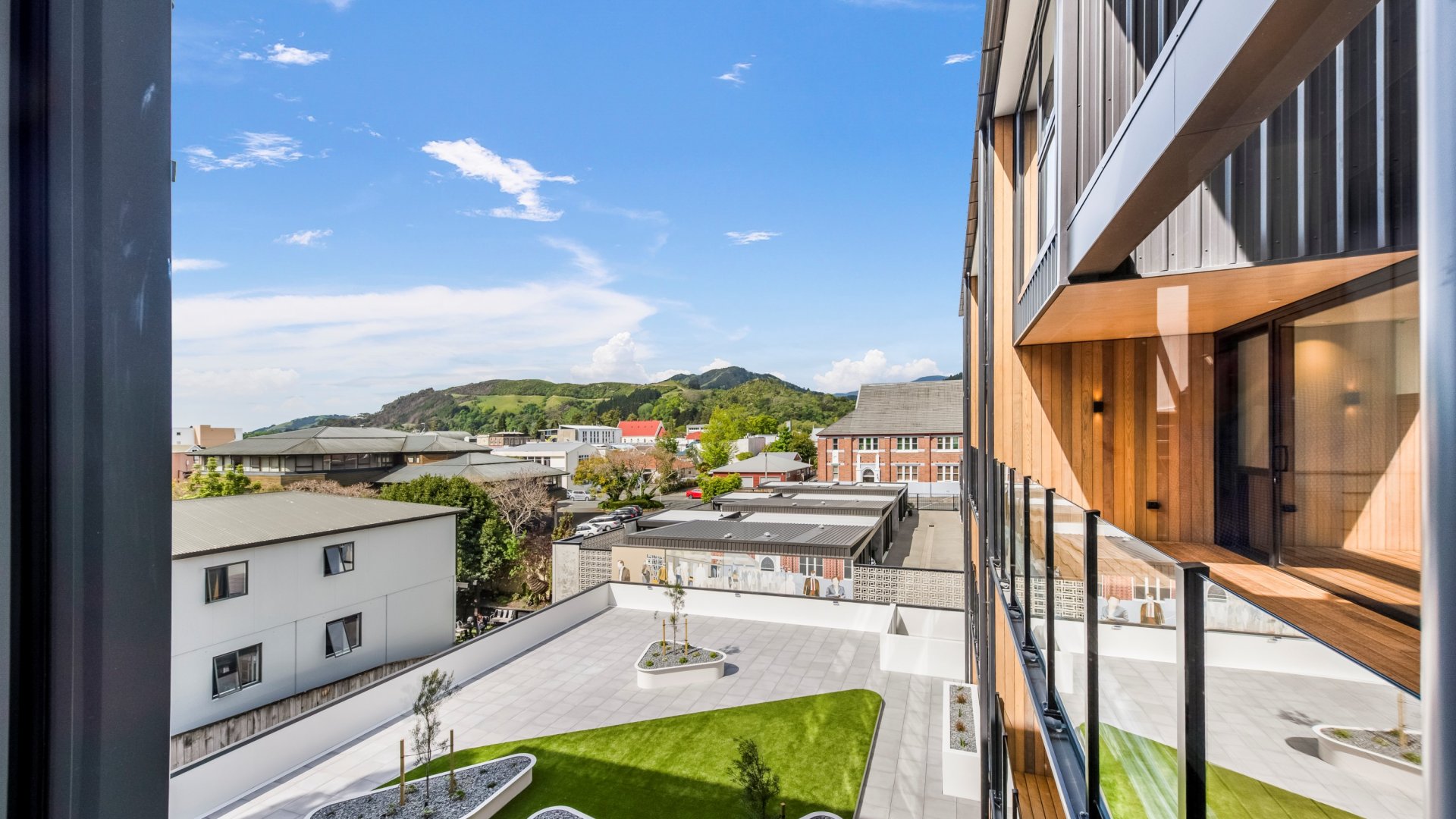People living in the city centre both benefit from and help to create safer streets, more vitality, extended shop hours, reductions in the need for driving and demand on parking, and justify increased public space investment leading to increased well-being for all city centre users.
Housing is one of the most basic needs for people, and stable housing is linked to positive economic, educational and social outcomes for individuals and communities. The lack of housing supply of different types and at different price points is one of the most significant challenges facing the Nelson region.
The City Centre has untapped potential to enable a variety of homes to meet the needs of our changing population, lifestyles and workforce. Nelson has an opportunity to utilise the significant capacity available in the city centre to provide homes for families, students, workers, and over 60s to enjoy the benefits of city centre living.
Residents in city centres are more active, more socially engaged, and benefit from greater amenity (libraries, theatres, medical services, hospitality, parks, public transport). Living in Nelson city is about embracing the opportunities that a smart city has to offer. It is a lifestyle that is increasingly sought after by a range of people in the housing market.
A high-quality public environment with a city centre focused on people makes living in the city more feasible, which in turn drives the development of city centre residential new builds and upstairs conversions. There is a growing demand for both residential sales and rentals in the city centre, coupled with a move towards working from home
Objectives

For Nelson to be A Smart Little City, a vibrant place to live where business and innovation thrive, it is vital that Council plays its part in helping ensure that housing development keeps up with demand. Council’s work on housing a thousand includes investment to kick start the market and provide exemplar investments by:
Using surplus property
Council is a significant property owner in the city centre and intends to use property that is surplus to requirements to leverage housing supply of different types and price points in partnership with others. The Betts Apartments are an example of turning a car park into intensified housing at the upper end of the housing market.
Partnering with Central Government
To increase our supply of affordable housing in the city centre, Council is partnering with Central Government. Many of the factors affecting housing affordability, such as rising prices due to increasing demand, and the level of household income, are not within Council’s control so it is crucial that we work closely with central government to ensure Nelson is receiving as much help as possible. The government’s recently released public housing plan recognises Nelson’s housing challenges and acknowledges that we are a priority area for assistance.
We are currently seeking feedback on selling Council property at 69 to 101 Achillies Ave and 42 Rutherford Street to Kāinga Ora, so it can be developed into a mix of affordable and social housing. Visit shape.nelson.govt.nz/kainga-ora-consultation for more information.
Economic incentives
Often criticised as not economically viable due to development costs, development contributions in the city centre are wavered for the creation of all new residential units. A city conversion fund also provides opportunity for developers and property owners to receive a subsidy on regulatory fees upon application. Inner city apartments in Nelson often achieve a higher rental income than the average rent from commercial spaces.
Permanent parking
While no development is required to provide on-site parking and as a community we seek to reduce our dependence on carbon based travel, some city centre residents will still have a desire to use a car from time to time. At a fundamental level, people like to get out and about and enjoy the region and in the short term the only opportunity to do that is through using a car. More residents living in the city centre provides greater opportunities for other transport options to become more viable. City centre living has the potential to leverage:
Public outdoor living
Creating places in the city that provide outdoor space and amenity for residents increases the
attractiveness of city centre living.
What is ‘Mixed Use’?
Mixed use developments are areas where different activities take place in the same building, street or neighbourhood. Typically located in urban centres, these areas help to establish vibrant liveable environments.
By incorporating retail, office and residential space into a single project, mixed-use developments take advantage of the land upon which they are built during more hours of each day and by more people than a single-use building would be able to do.




